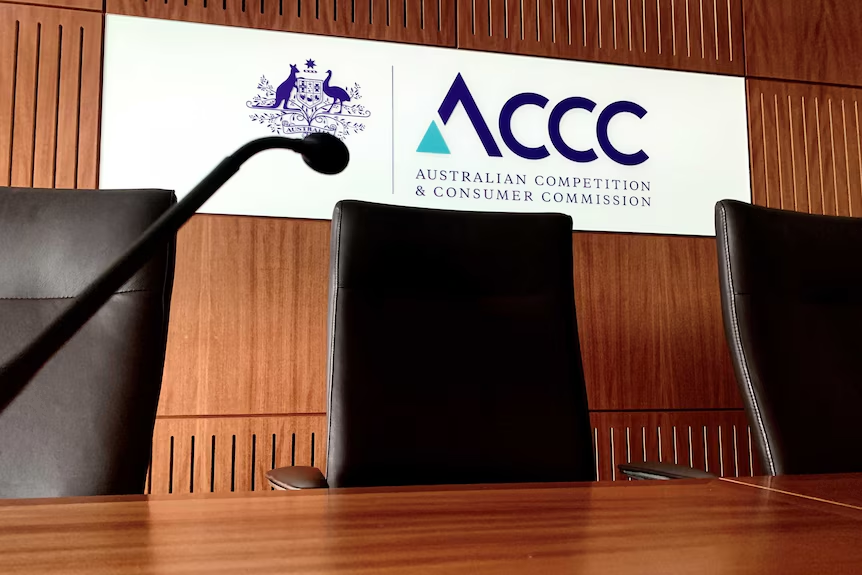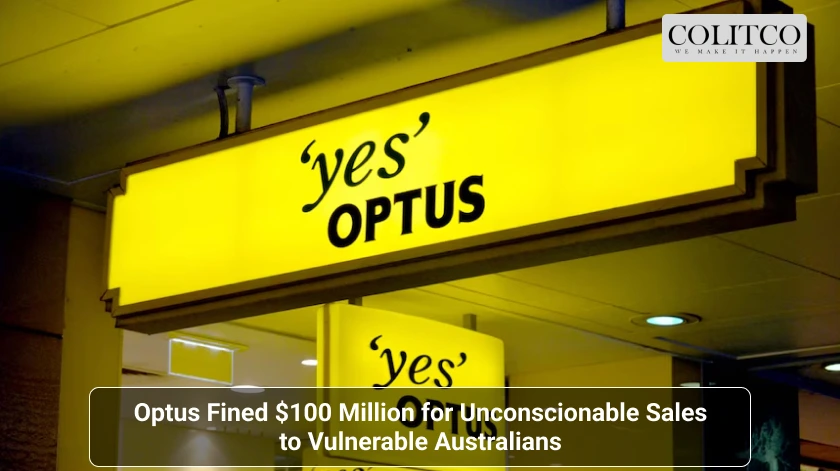In an unprecedented move, telecommunications giant Optus has agreed to pay a $100 million penalty after admitting to unconscionable conduct. The fine comes in response to the company’s appalling treatment of vulnerable Australians, many of whom were sold expensive products and contracts they could not afford, did not want, or could not use.
The Australian Competition and Consumer Commission (ACCC) announced on Wednesday that Optus had entered into a court-enforceable agreement to compensate customers and overhaul its internal systems. If approved by the Federal Court, this will be the largest penalty ever imposed on an Australian telco.

Optus has consented to a $100 million penalty for misconduct that occurred between 2019 and 2023. [Image: NewsWire / Damian Shaw]
What Optus Did Wrong
Between August 2019 and July 2023, sales staff at 16 Optus stores targeted more than 400 vulnerable customers. Many of the affected individuals were First Nations Australians living in regional and remote parts of the country. Others were living with cognitive disabilities, mental health conditions, limited English proficiency, or financial hardship.
The ACCC found that customers were misled, pressured, or manipulated into purchasing multiple high-cost mobile phones, accessories, and contracts, often with no understanding of their obligations. In one particularly shocking case, an Indigenous customer with no Optus coverage at home was coerced into multiple contracts, resulting in a debt exceeding $4,000. This customer was then hounded by debt collectors, further exacerbating their distress.
“These practices were not isolated,” said ACCC deputy chair Catriona Lowe. “They occurred in multiple locations and targeted some of the most vulnerable members of our society.”
The Human Cost
Lowe stated the affected customers experienced “significant financial harm,” with many accruing thousands of dollars in debt. For some, the consequences were even more damaging, leading to long-term emotional distress and fear.
“It is not surprising, and indeed could and should have been anticipated, that this conduct caused many of these people significant emotional distress and fear,” Lowe said.
Optus CEO Stephen Rue offered a public apology, calling the company’s conduct “inexcusable and unacceptable.”
“I would like to sincerely apologise to all customers affected by the misconduct in some of our stores,” Rue said. “Optus failed these customers, and the company should have acted more quickly when the misconduct was first reported.”

The consumer watchdog pursued legal action against Optus, resulting in the $100 million fine. [Credit: ABC News/John Gunn]
A Culture Driven by Sales Commissions
According to Financial Counselling Australia (FCA), the misconduct was driven by sales commissions that incentivised unethical behaviour. The industry body accused Optus of fostering a culture of “corporate arrogance” and failing to enforce basic compliance controls.
“This misconduct was the result of a lack of oversight and business models that failed to prioritise the protection of vulnerable customers,” said FCA in a statement. “This case is yet another example of why the telco sector needs stronger, enforceable regulation.”
FCA called for the abandonment of commission-based selling, which is still widespread in the telco sector despite being flagged as problematic in the Telecommunications Consumer Protections Code since 2022.
Debt Collection Despite Internal Warnings
One of the most disturbing revelations was that Optus continued to pursue debts even after launching internal investigations into the validity of the contracts.
At the now-closed Mount Isa store, the ACCC said senior Optus management knew that many of the debts involved contracts potentially entered into without the customers’ knowledge or understanding. Nonetheless, the company went ahead and referred these cases to third-party debt collectors.
“The majority of those affected were First Nations Australians from Mount Isa and the Northern Territory,” the ACCC stated.
Compensation and System Reforms
As part of the penalty agreement, Optus has committed to refunding affected customers. The telco says its remediation process has been developed in consultation with financial counsellors and industry partners to ensure fairness and transparency.
Additionally, Optus has pledged to overhaul its sales practices, including implementing better staff training and increasing compliance oversight.
“Impacted customers are receiving refunds as part of a remediation approach which is informed by financial counsellors and industry partners to make sure it is fair and reasonable,” Optus said in a statement.
Industry Implications
This is not the first time a major Australian telco has been penalised for such conduct. In 2021, Telstra was fined $50 million for unconscionable conduct involving Indigenous customers. That case affected 108 individuals and stemmed from a similar pattern of mis-selling and poor internal controls.
Consumer advocacy groups are now calling on the federal government to enforce stricter regulations across the industry. ACCAN chief executive Carol Bennett described the Optus penalty as “a necessary step,” but stressed the need for stronger safeguards.
“Unconscionable conduct is a high bar, and Optus has spectacularly surpassed it,” said Bennett. “We thank the ACCC for acting on behalf of those who were exploited by this appalling behaviour.”
Also Read: ASX Market Falls as Materials Weigh Down Gains from Tech and Energy
Looking Forward
Optus, a wholly owned subsidiary of Singaporean telecommunications firm Singtel, is under immense pressure to restore public trust. While the $100 million penalty is a historic one, many are questioning whether it is enough to ensure that vulnerable Australians are never treated this way again.
As the Federal Court reviews the penalty and proposed orders, the spotlight remains fixed on the telco sector’s responsibility to uphold consumer rights. The days of commission-driven exploitation may finally be numbered—if regulators, industry leaders, and consumers demand meaningful change.












